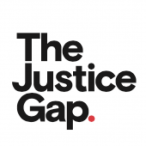Female officers who have suffered harassment from colleagues have been pressured into accepting gagging orders, hiding systemic failings, according to the chair of the Police Federation of England and Wales (PEFW). This follows the release of a report yesterday exposing the failure of the leadership to vet police officers and ensure their suitability for service.
Steve Hartshorn, chair of the PEFW, said that “What is not covered in the report is the number of officers with non-disclosure orders imposed on them, who have been silenced by their force from speaking out.”
The PFEW represents 130 000 ordinary officers, and is expected to accurately convey and work for their views and interests. Hartshorn claims gagging orders facilitate a culture of harassment and misogyny: “To bring about further positive change, PFEW will be campaigning for forces not to utilise non-disclosure orders to ensure learning, openness and transparency.”
The National Police Chiefs Council, responsible for coordinating the operations of police forces across the UK, according The Guardian, said that it will be discussing the matter with the PFEW, and it will “reiterate that they can’t recall any incidents of NDAs being used in the way that has been suggested by the Fed.”
In August this year, it was revealed that the Metropolitan Police were taking former chief superintendent Parm Sandhu to court, claiming she had violated the terms of her NDA by speaking publicly about institutional racism and sexism in the police force. Sandhu’s gagging order was far-reaching, forbidding her from making “derogatory” or “disparaging” comments about the Met.
Sandhu, speaking last night to Channel 4 news, said that officers that speak up about problematic behaviour including racial or sexual harassment are ‘demonised,’ not ‘given the help they need’ and ‘labelled trouble makers.’
Sandhu joins former police officers of various ranks that have spoken up about efforts to silence those speaking about racism and misogyny in the police force. Shabnam Chaudhri, a former Met detective superintendent, writing last month for The Guardian, said that her reputation was ‘tarnished’ after whistleblowing on racism. Chaudri, who said that Met was ‘corrupt, racist and misogynistic’, stressed the need for ‘safe spaces for whistleblowers to speak out.’






